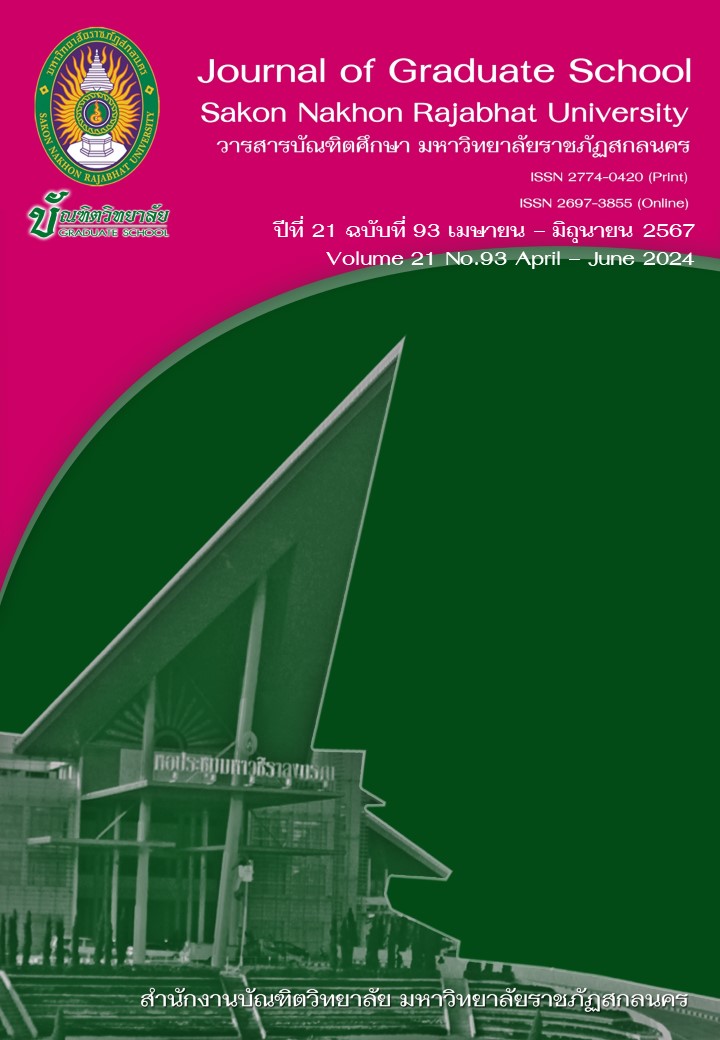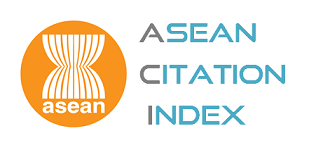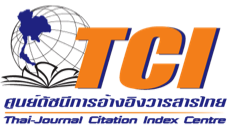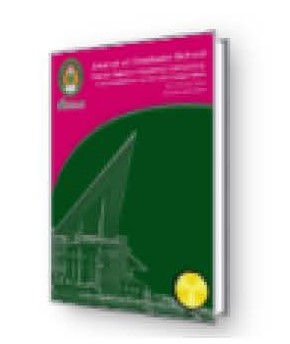PARTICIPATIVE IRRIGATION ADMINISTRATION AND MANAGEMENT: A CASE STUDY OF MAE TACHANG RESERVOIR PROJECT, CHIAN GRAI PROVINCE
Keywords:
Irrigation Administration and Management, Mae Tachang Reservoir, Participative ManagementAbstract
The objectives of this mixed-methods research were to 1) examine the factors or variables affecting the irrigation administration and management in the Mae Tachang Reservoir Project, Chiangrai Province, 2) investigate the level and relationship of geographic factors with irrigation administration and management, 3) assess public opinion on whether the Mae Tachang Reservoir Project in Chiangrai Province has affected the happiness of residents, and 4) examine the problems and obstacles faced in irrigation administration and management. The population in this research, obtained through multi-stage random sampling, comprised the residents in water-receiving areas of the Mae Ta Chang Reservoir and stakeholders. A mixed-method approach combining quantitative and qualitative methods was employed.
The findings revealed that most of the samples were male, married, aged between 51 and 60 years old, completed their lower secondary education, worked as general laborers earning between 1,001 and 1,500 baht per month, and had resided in the area for more than 21 years. The sample group’s opinions regarding irrigation administration and management were overall rated at the highest level, with their overall happiness similarly reported at a high level. The geographical factors in terms of monthly income and duration of residency in the district, exhibited varying effects on irrigation administration and management differently, whereas other demographic factors showed no differences. Factors based on the organizational development model comprised of leaders, team members, motivation, engagement and acceptance, and participation were significant and related to the success of the construction performance of the Mae Ta Chang reservoir construction project.
References
กรรณสิทธิ์ สะและน้อย. (2560). การบริหารจัดการน้ำเพื่อความยั่งยืนในการทำเกษตรกรรมบริเวณเขื่อนลำพระเพลิง อำเภอปักธงชัย จังหวัดนครราชสีมา. ในรายงานสืบเนื่องจากการประชุมวิชาการระดับชาติ ครั้งที่ 4 (หน้า 746-754) กำแพงเพชร: สถาบันวิจัย มหาวิทยาลัยราชภัฏกำแพงเพชร.
กิ่งทอง กิจจานนท์. (2557). ความสุขของประชาชนในเขตเทศบาลเมืองจันทบุรี จังหวัดจันทบุรี. วิทยานิพนธ์ ศศ.ม. จันทบุรี: มหาวิทยาลัยราชภัฏรําไพพรรณี.
ไตรรัตน์ โภคพลากรณ์. (2561). การบริหารโครงการ. กรุงเทพฯ: คณะรัฐศาสตร์ มหาวิทยาลัยธรรมศาสตร์.
สำนักงานกองทุนสนับสนุนการสร้างเสริมสุขภาพ. (2552). Happy 8 Workplace คนทำงาน ความสุข ที่ทำงานน่าอยู่ ชุมชนสมานฉันท์. นนทบุรี: กระทรวงสาธารณสุข.
ทวีศักดิ์ ธนเดโชพล. (2558). ความร่วมมือในการจัดการภัยพิบัติเพื่อป้องกันและบรรเทาอุทกภัย กรณีศึกษา: จังหวัดชุมพรและจังหวัดสงขลา. ดุษฎีนิพนธ์ ปร.ด. กรุงเทพฯ: มหาวิทยาลัยรามคำแหง.
วิภพ ทีมสุวรรณและคณะ. (2558). ยุทธศาสตร์การบริหารจัดการน้ำอย่างยั่งยืน 25 ลุ่มน้ำ The Sustainable Water Management Strategies of 25 River Basins. กรุงเทพฯ: สำนักบริหารจัดการน้ำและอุทกวิทยา.
อริญชย์วิชญ์ แสงนักธรรม. (2560). การบริหารจัดการทรัพยากรน้ำข้ามพรมแดนแบบบูรณาการ กรณีศึกษา: การบริหารจัดการอุทกภัยข้ามพรมแดนแบบบูรณาการ ในลุ่มน้ำกก ในช่วงปี พ.ศ. 2544–ปัจจุบัน (2559). วิทยานิพนธ์ ร.ม. กรุงเทพฯ: มหาวิทยาลัยธรรมศาสตร์.
Agranoff, R., & McGuire, M. (2003). Collaborative public management: New strategies for local governments. Washington, DC: Georgetown University Press.
McEntire, D. A. (2007). Disaster response and recovery: Strategies and tactics for resilience. Hoboken, NJ: John Wiley & Sons.
Wajjwalku, S. (2015). State – community relations and the integrated water management in Northen Thailand: The case study of the People Council of Ing River. Retrieved from http://tiger.law.osaka–u.ac.jp/wp–content/uploads/ 2015/03/2–4–13f_siriporn.pdf. September 9th, 2023.
Downloads
Published
How to Cite
Issue
Section
License
Copyright (c) 2024 Journal of Graduate School Sakon Nakhon Rajabhat University

This work is licensed under a Creative Commons Attribution-NonCommercial-NoDerivatives 4.0 International License.
บทความทุกบทความที่ตีพิมพ์ในวารสารบัณฑิตศึกษา มหาวิทยาลัยราชภัฏสกลนคร ถือว่าเป็นลิขสิทธิ์ของบัณฑิตวิทยาลัย มหาวิทยาลัยราชภัฏสกลนคร










